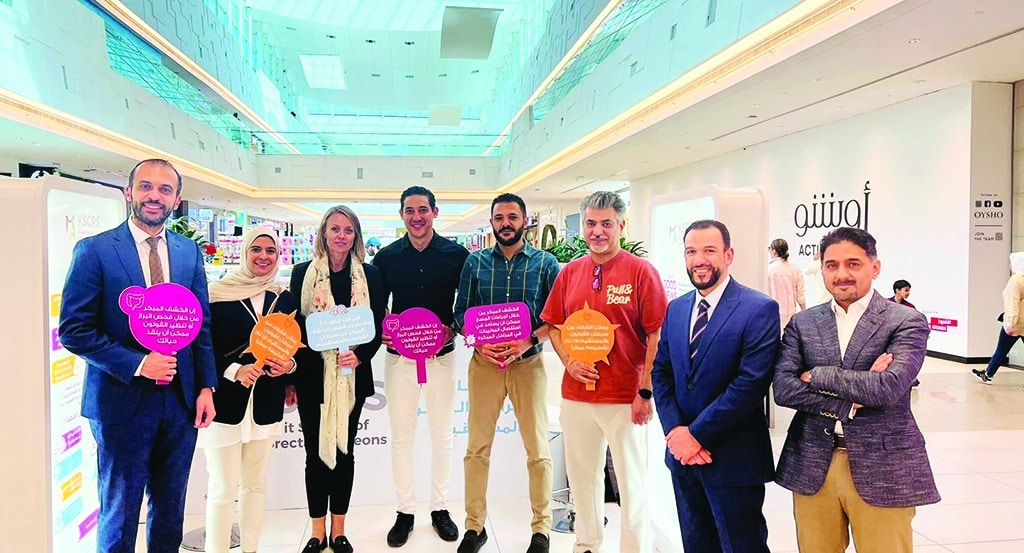By Abdellatif Sharaa
KUWAIT: Internist, Gastroenterologist and Hepatologist Dr Wafaa Al-Hashash said fasting is safe and effective for "fatty liver" patients, adding it is a good way to reduce weight and fat levels in the blood, in addition to the accumulated and stored fat in the body. It also improves enzyme and liver functions with a reduction of liver fatty acid and cirrhosis, but it should be under medical supervision.
Dr Hashash said in a press statement that a study published in Feb 2022 proved that fasting affects fatty liver through various mechanisms to reduce weight, including transforming the metabolism process away from forming and accumulating fat in the liver and improving insulin resistance and metabolic syndrome. She said fatty liver is the main reason for liver cirrhosis and cancer, adding there are no approved treatments for it. Among its causes are obesity and diabetes.
 Dr Wafaa Al-Hashash
Dr Wafaa Al-HashashDr Hashash said WHO statistics show that 9.5 percent of global inhabitants have "fatty liver" through autopsies, ie around 1.5 billion people have liver disease and divided into 60 percent with fatty liver, 29 percent with hepatitis B and 9 percent with hepatitis C. She said stats indicate fasting for 12 to 14 hours has a positive results, as it was found that after fasting for 30 days, a notable improvement was observed in the following: Reduction of body mass index by 6 percent; Reduction of fatty liver by 27 percent with the use of FibroScan (elastography); Reduction of the rate of liver cirrhosis by 30 percent; Reduction of accumulated fat in the body by 47 percent; Reduction in the HbA1C (a test that measures the average blood sugar levels over the past three months) by 10 percent.
This in addition to improvement in liver enzymes and functions. But Dr Hashash said it was found eating meals at night that are rich in fats and sugars, in addition to a change in sleeping patterns and changes in the biological clock, may reduce the benefits of fasting. She advised early detection of fatty liver and cirrhosis, adding there are modern techniques that help in the discovery such as the FibroScan system without the need for a biopsy. It measures the fat percentage in the liver with the use of ultrasound and is highly accurate.
Meanwhile, General Surgery Consultant at Mubarak Hospital Dr Abdallah Al-Haddad said Kuwait Society for Colon and Rectal Surgery held two days awareness program about colon cancer in order to make citizens and expats aware of the disease. He said the disease is the most spread among middle-aged men in Kuwait, according to Kuwait Tumors Center, and second to breast cancer. He said colorectal cancer affects Kuwaitis at a rate of 14.8 for every 100,000, while among non-Kuwaitis, the rate is 6.7 for 100,000 individuals.
Dr Haddad said the awareness campaign that was launched by the society succeeded in its goals in informing citizens and expats about the dangers of this disease and explained the importance of early detection of colon and rectum cancer. The earlier the discovery is made, treatment will be highly beneficial and the disease can be eradicated in its early stages.
Dr Haddad advised those over 45 years of age to undergo colonoscopy for early detection of colon and rectum cancer. Also, those suffering from bloating, abdominal pain, unexplained weight loss, change in defecation or blood in the feces must refer to a doctor to take the necessary action for treatment.











